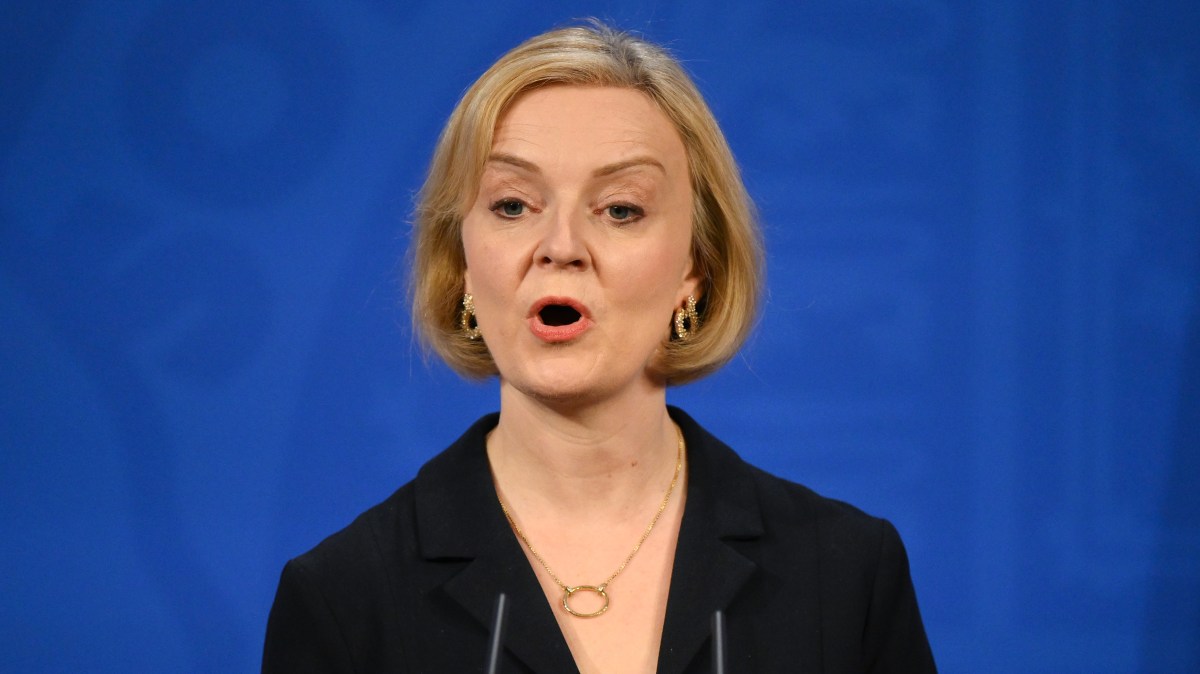The pound is vulnerable to another Liz Truss-style “tantrum” because of rising political and fiscal risks, a large investment fund has warned.
RBC BlueBay Asset Management has said it has built up a short position on the pound — a bet that it will fall against major currencies — “as UK political risks grow and economic fundamentals remain challenged”.
“Were there to be a bigger dislocation in gilt yields, this could also see pressure return on the currency as we witnessed under the Truss tantrum back in 2022,” Mark Dowding, chief investment officer at RBC BlueBay, said.
The pound has gained more than 8 per cent against the dollar this year, as the UK’s interest rate environment has remained high and investors have begun betting on monetary loosening in the US from next month. Sterling has weakened by about 4 per cent against the euro this year to €1.15.
Although tight monetary policy usually helps to support a currency’s value, Dowding warned that the UK remained vulnerable to markets losing confidence in the government’s ability to stabilise the public finances, leading to higher government borrowing costs in the form of gilt yields and a weakening currency. This dynamic was most pronounced in the aftermath of Truss’s mini-budget in September 2022.
• Britain is broke: how inflation-linked debt costs us £60bn
Dowding said that if the government could not bring down the UK’s “runaway welfare spending”, then “there is a sense that the market’s trust in the government’s policy stance is starting to evaporate”.
“Long-dated gilt yields are at their highest level since 1998 and yet there seem few buyers eager to step into the market, even at these elevated levels,” he said.

Sir Keir Starmer and Rachel Reeves’s handling of welfare spending has caused particular concern
DAN KITWOOD/GETTY IMAGES
Borrowing costs on long-dated 30-year bonds hit a 27-year high of 5.6 per cent last week (bond yields rise when the price falls). While short-term government borrowing costs are largely determined by the interest rate outlook, investors demand a higher premium to hold longer-dated debt if they are worried about the country’s growth and fiscal outlook.
Andrew Bailey, governor of the Bank of England, said the UK faced an “acute challenge” to raise its growth potential and that falling labour force participation since the pandemic was a “sad story … because we are well at the bottom of the league table”.
The UK’s 30-year gilt yield of 5.6 per cent compares with 3.3 per cent in Germany and 4.88 per in the US. The yield on longer-dated gilts has also risen by one percentage point since the Bank of England began cutting interest rates last summer.
Investors’ appetite for the UK’s 30-year bonds has been steadily dwindling as defined benefit pension funds that have typically been holders of longer-term assets no longer need gilts to match their liabilities. The Bank of England has also been steadily selling its gilt holdings back to the market since 2022.
The International Monetary Fund and the Office for Budget Responsibility have warned of the risks of fewer “patient” bondholders in the gilt market.

